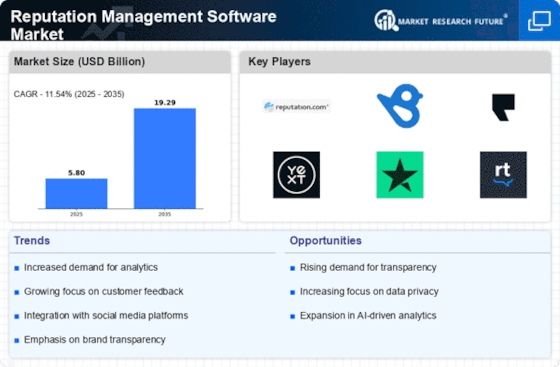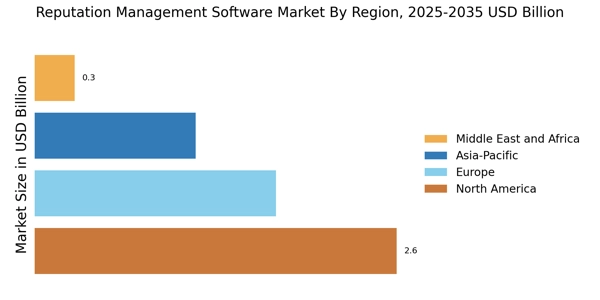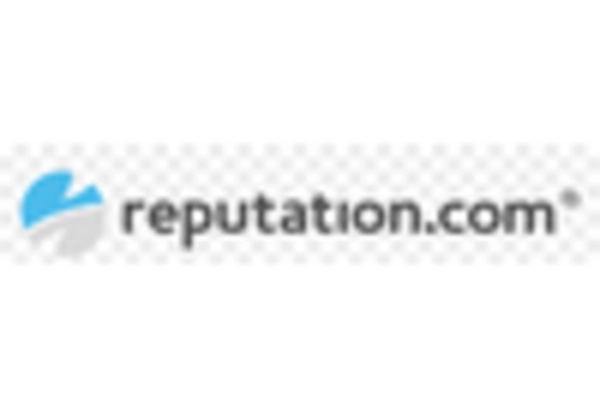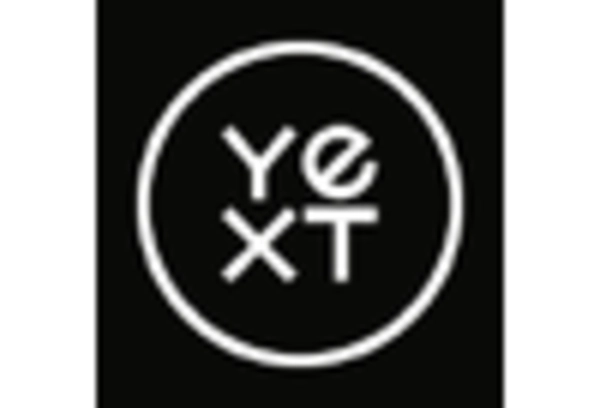Rise of E-commerce and Online Reviews
The exponential growth of e-commerce has transformed consumer behavior, with online reviews playing a pivotal role in purchasing decisions. In the Reputation Management Software Market, businesses are increasingly leveraging software solutions to manage and respond to customer feedback across various platforms. Research indicates that approximately 90% of consumers read online reviews before making a purchase, underscoring the necessity for companies to actively engage with their audience. This trend is driving the demand for reputation management tools that facilitate timely responses to reviews and enhance customer engagement. As e-commerce continues to flourish, the market for reputation management software is poised for significant growth.
Regulatory Compliance and Data Privacy
As regulations surrounding data privacy and consumer protection become more stringent, businesses are compelled to adopt reputation management solutions that ensure compliance. The Reputation Management Software Market is witnessing a surge in demand for tools that not only monitor online sentiment but also help organizations adhere to legal requirements. For instance, the implementation of the General Data Protection Regulation (GDPR) has prompted companies to be more vigilant about how they handle customer data. This regulatory landscape creates a pressing need for reputation management software that can assist in maintaining compliance while safeguarding brand integrity. Consequently, the market is expected to expand as organizations prioritize compliance in their reputation management strategies.
Technological Advancements in Analytics
The advancement of analytics technologies is reshaping the landscape of the Reputation Management Software Market. Companies are now able to harness sophisticated data analytics tools to gain insights into customer sentiment and brand perception. These technologies enable businesses to track online mentions, analyze trends, and identify potential issues before they escalate. The integration of machine learning and artificial intelligence into reputation management solutions is enhancing their effectiveness, allowing for more proactive reputation monitoring. As organizations recognize the value of data-driven decision-making, the demand for advanced reputation management software is likely to increase, reflecting a broader trend towards leveraging technology for strategic advantage.
Growing Focus on Brand Loyalty and Trust
In an era where consumer loyalty is increasingly elusive, businesses are placing a greater emphasis on building and maintaining brand trust. The Reputation Management Software Market is responding to this shift by offering solutions that help organizations foster positive relationships with their customers. Companies are recognizing that a strong reputation can lead to increased customer loyalty, which is essential for long-term success. Studies suggest that brands with a positive reputation can command a price premium of up to 20%. This realization is driving investments in reputation management tools that not only monitor brand perception but also facilitate engagement strategies aimed at enhancing customer trust and loyalty.
Increasing Importance of Online Reputation
The growing reliance on digital platforms for business operations has heightened the significance of maintaining a positive online reputation. Companies are increasingly aware that a single negative review can have far-reaching consequences, potentially impacting customer trust and sales. In the Reputation Management Software Market, businesses are investing in tools that help monitor and manage their online presence. According to recent data, organizations that actively manage their online reputation can see a 20% increase in customer retention rates. This trend indicates that the demand for reputation management solutions is likely to continue rising as companies strive to protect their brand image in an increasingly competitive landscape.
















